Just the other day we announced that Tim Hemeon’s Explosive Psychic Thriller SOUL STORM is our Thriller of the Week and the sponsor of thousands of great bargains in the thriller, mystery, and suspense categories: over 200 free titles, over 600 quality 99-centers, and thousands more that you can read for free through the Kindle Lending Library if you have Amazon Prime!
Now we’re back to offer our weekly free Thriller excerpt, and we’re happy to share the news that this terrific read is FREE for Kindle Nation readers during its TOTW reign!
Soul Storm: a psychic thriller
by Tim Hemeon
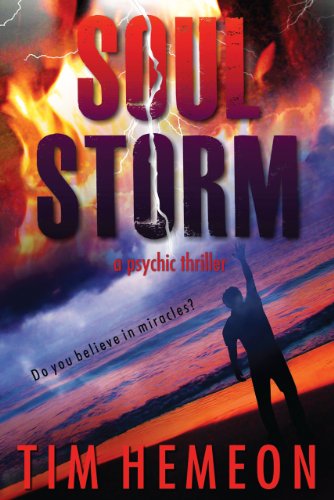
And here, for your reading pleasure, is our free excerpt:
Customer Review:
Can’t put it down!
Tim Hemeon’s Soul Storm: A Psychic Thriller is one of those rare books that a reader cannot put down. Why is that? I think it’s because Tim’s protagonist, Ken Hansen, hooks us from the get-go. Like you and me, Ken isn’t special: he’s an average person trying to survive the tragic loss of his only love, Carol. Sure, there was a horrible accident, but Ken’s heart and soul tell him she’s alive and he can’t let that feeling go. This belief fuels an extraordinary adventure of intrigue and betrayal and makes the reader care deeply about this kind man. Along the way, Ken discovers he is able to heal people; perform miracles. Is he a saint? Only if saints are allowed to kick some evil butt, for there is no lack of bad guys. The book will keep you turning pages, ignoring dirty dishes, quarreling kids, and whining dogs begging for walks. You will laugh, cry, shout at the injustices, and celebrate the successes. I highly recommend SOUL STORM.
Soul Storm: a psychic thriller
By Tim Hemeon
I.
Stirrings
It was many and many a year ago,
In a kingdom by the sea,
That a maiden there lived whom you may know
By the name of Annabel Lee;–
And this maiden she lived with no other thought
Than to love and be loved by me.
She was a child and I was a child,
In this kingdom by the sea,
But we loved with a love that was more than love–
I and my Annabel Lee–
With a love that the winged seraphs of heaven
Coveted her and me.
EDGAR ALLAN POE
“Annabel Lee,” verses 1 & 2
1.
The small crowd pressed in, barely giving Ken enough room to paint. He squeezed more cadmium yellow onto his palette and then used the knife to highlight the woman’s hair. A boy bumped his easel; a momentary stare was all it took to make him back off.
Though admirers loved his portrayals of white-topped crests and the subtle color changes of thinning waves, it was the woman who won his customers’ hearts. Each scene contained her, and today’s work was no exception.
The man next to him asked the question he’d heard countless times: “Who is she?”
Ken didn’t answer. They paid for the mystery, not the revelation.
The real question was why he painted here each day. That truth sat deep in his mind like a spider kept for study in a specimen jar, patiently waiting for the chance to escape its confines and bite. Ken pushed the spider-thought back into the jar.
He glanced away from the canvas, and at that exact moment the jogger ran past; the lid loosened and the spider escaped, fangs ready. Ken’s palette fell onto the sand and he was about to run after her.
No! Don’t do this to yourself.
He blinked and looked at her again. He’d been mistaken – he could see that now. Her legs were a little shorter. Her waist thinner. Ken remained at his easel, staring for a few more seconds. She wasn’t Carol, but from the back…damn.
His psychiatrist would describe this as an episode. Maybe Ken was finally losing it – almost chasing after a complete stranger. He figured painting was the only thing keeping him sane, but now he wondered.
Here at La Jolla Shores they had spent some of the best days of their lives. Free from the constraints of clocks and schedules, they’d amused themselves with backgammon, paperback novels, and people watching. Occasionally they’d surf, spending hours catching waves as the energy of the Pacific fueled their adrenaline rush. It was over a year since that all came to an end, but still he came here.
He whispered a prayer – to Carol, or to himself – he didn’t know. But he said it nonetheless. “I’ll find you. I swear I’ll find you.”
***
After securing his belongings in the SUV, Ken walked over to the restrooms. They’d been remodeled unisex, supposedly to shorten the long wait that had cursed the women’s facilities. Now it was every man for himself. He chuckled – even that maxim was outdated.
A few more doors opened and finally it was Ken’s turn. When he exited the restroom, he stopped long enough to rinse the sand from his legs and feet.
Kellogg Park boasted an expansive lawn between the bathrooms and the parking lot, fringed with palm trees and subtropical shrubs. Ken crossed the park, taking his time, enjoying the feeling of the short-cut grass on the soles of his drying feet.
***
Reluctant to start the car, instead he studied himself in the rear view mirror. He almost didn’t recognize the man looking back. He had the same thick brown hair and square chin, but his features were now a bit gaunt, the green eyes haunted. He looked away, uncomfortable with the self-examination.
Hand on the ignition, he started to turn the key, then hesitated. He was suddenly sweaty. Clammy. His heartbeat pounded in his ears as once again the fear overcame him. His psychiatrist would tell him he needed to manage his dosage better. That fixating on Carol was unreasonable. That he needed to accept reality. The Dr. Van Cleeve soundtrack played in Ken’s head.
There is a rational explanation for every situation. You might think that you feel her presence, but it is just the lingering effects of your own grief. Your daily ritual of painting at the beach is an obsession. You need to let her go.
It might be obsessive. Ken could accept that. Ironically, his diagnosis didn’t preclude Dr. Van Cleeve from purchasing one of Ken’s paintings.
Ken knew what would happen when he turned the key. Just as well as he knew the sky was blue. But he had to start the car eventually. He braced himself and went ahead with it. As the engine came to life, Always and Forever by Heatwave came out of the stereo speakers; it failed to sooth Ken.
“God, it can’t be!” Ken shouted.
There is a rational explanation for every situation.
Ken pressed the eject button and the disc slipped out the narrow slit in the front of the CD player. He grabbed it and read the label.
“How?” Ken whispered, the word barely audible. He carefully set the disc on the passenger seat and closed his eyes until his breathing returned to normal.
He made his way down Camino del Oro, passing the Spanish tiled Sea Lodge Hotel. Turning left on Avenida de la Playa, he noticed a family playing golf at the La Jolla Beach and Tennis Club. Did they know how good they have it? He wasn’t contemplating the money most likely at their command, but rather their wealth of relationships – having each other.
Most people take their loved-ones for granted until they lose them. The causes are varied. Adultery. Divorce. Death. The results are crippling. Loneliness. Emptiness. Depression.
The streets were full of tourists, businessmen, surfers, and of course the typical homeless man with a cardboard sign; La Jolla was a stimulating blend of the wealthy and the poor. Ken passed a Jaguar XKR convertible, a 1960’s Volkswagen Bug, and then a Rolls Royce Phantom. In a land of haves and have-nots, at least the sunshine was free: vitamin D for all.
He followed the serpentine route upward to La Jolla Scenic Drive. The house belonged to Denny, his close friend since college. When Ken came upon hard times Denny rented the bungalow out back to him. It wasn’t much – one bedroom, a bath, and a kitchenette. But the price was right.
Denny’s parents, Ted and Anne Arnold, lived in the main house. They rented a room to a college student named Armin; he was here on a student visa, a long way from his home in Jordan.
As Ken walked toward the house he saw that the Arnolds sat in their usual spot on the front porch. “Ken,” said Anne. “Where have you been painting today?”
“Hi, you two. The usual.”
“So predictable. Why not try Mission Beach or Carlsbad next time?”
He shrugged.
“Can we see it?”
Ken faced the painting toward them, revealing the figure of a woman looking at the surf, her long hair blowing in the wind. Slightly turned away, viewers were forced to imagine the details of her face. The woman gave a haunting impression of someone incomplete, as if she was seeking her own answers to unknown questions.
“Always the lonely woman,” said Anne. “You know you could offer your art in a gallery, like the one down on Fay Avenue, and make at least ten times as much as you do selling paintings at the beach. The manager is a friend of mine; I’m sure he’d agree to a preview.”
“No,” he said. “My customers – they don’t walk into art galleries like that. This is as close to art as a lot of them will ever get.”
Ken said goodbye and walked through the side entrance. Once inside, he set the CD on the kitchen counter, placing a metal paperweight on top of it for good measure.
He dug through the contents of the trash can, but couldn’t find it. You may think you threw it away, but you obviously didn’t. Dr. Van Cleeve would infer that it was Ken himself who took it out of the trash. Perhaps in a state of sleepwalking. And if he didn’t? Well, either explanation was a cause for concern.
A hot shower relieved some of his tension, and then he decided to lie down. He fell asleep almost instantly.
Kenny listens to the rain pelting the window of his mobile home bedroom. She thinks he’s asleep. Not now. Not since the radio call.
He opens the door; the hinges rotate soundlessly. He keeps them well lubricated with bicycle chain oil; a squeaky hinge or a creaking floor is a dead giveaway during a mission.
He calls his midnight snack treks and his more risky outdoor ventures “spy missions.” He sees himself as Jim Phelps on Mission Impossible. He is invincible as long as he operates according to his training. But if he deviates he knows death awaits him, just as the secret tape burns up after its message is received.
At the kitchen table, Mother is reading a magazine and drinking Sanka. Five minutes from now she’ll turn on channel ten to watch the evening news.
At the back of the double-wide mobile home, he enters the laundry room/pantry, closing the door behind him. Prior to opening the exterior door, he requisitions supplies: a Baker Boy pastry and a 7-Up will give him enough energy for this particularly risky mission.
Making his way from the parsonage to the church, he almost changes his mind. He could easily retreat back to the safety of his room. The sky teems with billowing black clouds that press down threateningly upon both the small boy and his father’s church.
Only seven years old, in his mind he is an adult – a mission specialist with nothing to fear as long as he follows orders.
Above him the clouds churn in their own malevolent flow of motion, like evil spirits engaged in an unfathomable dance. The rain falls hard, pounding against Kenny’s hood.
The walkie-talkie emits static again, and then the voice is back.
“Command to Kenny. Over.”
Strange; up until now all radio messages have been imagined. This particular mission must be important because he isn’t making up the radio chatter, but actually hears a voice. The same voice that woke him up earlier calls to him now.
“Command to Kenny. I know you can hear me. Respond. Over.”
He keys the talk button and speaks. “Hello, Kenny to command, over.”
“You should be here by now. Hurry – my time is running short. Over.”
He wonders again how this is happening – the walkie-talkie working when it’s been broken for months. Simple: mission control repaired it and put it back in his room. In his world of black and white, Kenny is satisfied with his own reasoning.
“Acknowledge. ETA two minutes. Over.”
His mission is to enter the church building unobserved, scout a good location to observe the sanctuary, and wait.
Using the extra key taken from his father’s desk, he unlocks the door to the church lobby. It’s dark; scant light enters through the windows.
Inside, the pounding rain is magnified. Kenny envisions an army of mutant drummers signaling impending doom to the invaders of a cannibalistic society.
The counter is filled with stacks of Sunday programs, the tithe box, and visitor information packets.
He enters a door into the fellowship hall. The room has a fireplace and a kitchen. Next he passes his father’s study and the secretary’s desk.
The wail of the storm is accompanied by another howl, as if a lone coyote is trapped in the sanctuary. The unnatural bay raises the hairs on Kenny’s neck.
He freezes. He can see the typewriter, the Rolodex, and the jar of candy that Mrs. Rayford keeps on her desk. The radio in his jacket squeaks to life.
“Command to Kenny. Stop looking at the candy and hurry, you little son of a bitch!” The voice is no longer detached, professional, and relaxed. Rather, it is extremely emotional and coarse.
How can they know what he is looking at? And why is command swearing at him? Something is wrong and he knows it. Secret agents and their command centers always keep emotions under control.
Who is he really talking to? The only way to find out is to keep going.
He decides to turn the radio off, but as he touches the volume knob, the voice screams, “Leave it on, Goddamn you! You’ll ruin the mission. Leave it on. That’s an order!”
Instead, he turns it down so it is barely audible.
He hears a loud ringing in his ears. It is insistent and, like an alarm, the sound goes on and off, on and off.
Ken woke with a start. The nightmare had been haunting him more than ever lately. With a weary sense of apprehension, he picked up the ringing phone.
2.
He had just enough time to get to his parents’ for Friday dinner. Ken pulled his Montero out of the driveway, thankful that the stereo remained silent.
Taking I-5 north, he made good time for a few miles and then the traffic came to a standstill. Creeping along, he finally passed a seven-car accident in the two fast lanes near the 56 freeway. One car was turned over and rescue crews were using the Jaws of Life.
Ken thought about the term: Jaws of Life. Why didn’t God, who is supposedly omnipotent, reach down and rip the car open himself? Why did people have to suffer and die in accidents?
Once he passed the wreck, the traffic sped up again. Soon he arrived in Del Mar, home to horse races, the Del Mar Fair, and his parents.
In front of Steve and Valerie Hansen’s house a rustic wooden sign announced: “La Casa del Mortgage Gigante.” That was, his dad bragged, his attempt to fit into the Spanish heritage of San Diego. Always humor with Dad. He’d won souls by weaving wit into his sermons. Better than thumping his Bible like Jimmy Swaggart in a sweating fit. He didn’t scream about fire and brimstone either, but told stories about God’s sense of humor.
Ken remembered the one about God testing his dad’s patience. As told, he’d lined up behind a lady at the grocery store checkout, the same one he’d been following in line at the post office when she couldn’t decide between a roll of stamps or a book. At Vons she couldn’t decide between paper and plastic. Finally she figured out the science of hitting the green button on the ATM pay pad. And at the store exit she paused in front of a Coke machine, her money deposited as her fickle nature vacillated between soft drink options. With her ample derriere angled out into the exit, it was impossible to get by. What were his options, he had wondered? “Damn the torpedoes and full speed ahead,” seemed an unacceptable solution. And yet again, who would Jesus crash into? (start laugh track).
So he waited until she made her choice, thinking about how God views us. Waiting as we vacillate between chaos and purpose, between shame and glory. To choose to accept the wonder revealed around us daily or instead to continue in our self-destructive modes. Choices like the sodas in the machine – the buttons ours to push. At least that’s how his dad had depicted God’s perspective.
Over the last year Ken had come up with his own descriptor: uninvolved. If God had such good plans for mankind, then why all the suffering? Why had Carol been taken from him?
Ken went right to the kitchen where he knew he’d find his mother working her magic at the stove. Seventy-eight years young, a woman of quiet faith, she’d stuck by Ken’s dad in spite of his low paying career as a pastor, even when church came first and family second. Stayed with him when he struggled with alcohol, something only a few people knew about. And she was with him now as he fought against the collapse of his own body.
“And how,” said his mother, “is my favorite boy?”
“Fine,” said Ken. “Am I really your favorite boy?”
“You know it’s true, Kenny.” Her smile had a touch of gentle mirth to it. “Of course, you’re my only boy.” She hugged him and then gave him a big kiss on the cheek.
“How’s Dad doing today?” asked Ken. Due to his faith, he’d initially avoided going to see a doctor. That earned him no points with God, who had prescribed multiple strokes and Parkinson’s disease.
“We’ll get to your father soon enough,” his mother said. “Now, how are you really? You know I can see right through you.”
“I thought…” whispered Ken. “I thought I saw Carol today. This woman ran past me. I couldn’t see her face, just like the woman in my paintings. God, she looked so much like her.”
“What did you do?”
“I fought the urge to go after her. She wasn’t Carol.”
“Of course not, Honey,” consoled his mother. “We’ve been through all that. How could it be?” And then more firmly, “You know she’s dead. Kenny, you can’t keep torturing yourself like this.” Ken hugged her tight and cried. She caressed his hair.
“There’s no way she could have survived that accident. She’s at rest now, and you have to let her go.”
Carol had been in Colorado attending the Earth Lovers Ecofest, a gathering of ecologists, eco-activists, and plain old hippies. Ken didn’t like their liberal thinking or the fringe groups that attended the gathering. Some attendees stayed in hotels, but Carol and many others preferred to camp.
He’d joined her the year before, but all the pot smoking, drinking, and free love at the camps pissed him off. Unlike Ken, Carol was a creative freethinker who would try anything at least once.
He refused to go with her the next year and they’d had a big fight. She said he didn’t care about the planet and left in a huff. That was the last time he ever saw her.
When he wasn’t blaming God, he blamed himself for her death. If he’d gone along, he would have been driving and she wouldn’t have gone off the highway.
Since then he’d changed. Often bucking the system, he struggled with conformity. His complete disregard for authority had been the main reason for his termination as a teacher. “Substantiated Insubordination,” declared his pink slip.
“Mom,” Ken sighed. “I know all of that, but part of me believes she’s still alive.”
“Believe? Now you’re starting to sound like your father.” She smiled at him and it calmed him down like only a mother’s gaze can. “Let’s eat now, and then you can go up to see him.”
They sat at the old, cherry-wood table they’d made by hand when Ken was nine years old. Back when he was his dad’s little pal. They made it big enough to seat twelve.
In a lumber yard specializing in exotic woods, his dad let him pick out the pieces. He selected those with lots of character and knots. Back home, they used a planer to resize each piece of wood to a thickness of 1 ½ inches. Then with a joiner they created straight edges.
They laid the boards out in a nice pattern, glued them together, and clamped them to dry overnight. Finally, they sanded and finished it with three coats of polyurethane. It was the best gift Ken had ever made or given, and his mother had cried she loved it so much. Now it was usually empty, though it did fill up again on holidays when Ken’s sisters visited with their families.
While his mother did the dinner dishes, Ken went upstairs to see his dad. He sat down next to him and took his hand.
“Hi Dad.”
There was no response, but that didn’t surprise Ken. His dad had lost his ability to speak. The doctors said it might come back, that often stroke patients did regain use of their faculties over time. But he’d been silent for six months now. Couldn’t walk either. Or use his hands. At least he was able to eat, though he had to be fed.
“I love you Dad. I don’t know if you can hear me or not. I wish you could talk back to me.” There was no other sound except the ticking of the clock next to the bed. Ken quietly held his dad’s hand for a long time. Then he kissed him on the forehead and left the room.
***
His mother sat outside on a bench sipping tea. Joining her, he sighed and lowered his head. A gentle breeze invited foggy clouds back inland to bookend the day with a cold caress.
“How did it go?” she asked.
“The same,” said Ken. “Why is God against us?”
“That again? Just because life is difficult it doesn’t mean God’s against you.”
“But don’t you see? He is against me! He’s taken Carol and he’s left me. And look at what he did to Dad.”
“No, Kenny. Your father’s lived a long life. What better adventure could we have had? We met and helped so many people. Seems like we just started out yesterday – your dad a new youth pastor and us living in that ratty old mobile home behind the church. Then buying this house when we could barely afford it. I had to give piano lessons to help make ends meet.”
“I know it wasn’t easy for you guys.”
She shook her head. “Who said life was supposed to be easy? You shouldn’t expect easy. You just try to live each day with joy.”
They were silent for a few minutes as cold tendrils of fog descended upon them.
“Now, I don’t want you to worry about him. Your sisters are helping – one of them’s here every day. Plus the hospice will start coming out from 11:00 pm until morning. You go home and get some rest now.”
3.
Ken stopped at a bar and ordered a 22-ounce Woodstock IPA. The cold brew sure as hell tasted better than Miller Lite, his typical drink of preference, but tonight he needed something with a bit more punch to it.
So Hospice was coming out. He knew his father was deteriorating, but he didn’t know it was that bad. They felt sorry for Ken, thus he was left out of the loop. He was unbalanced and maybe even suicidal, so they insulated him.
Ken had heard whispers of some of the private details of his dad’s career. The knowledge, as his dad called it, was not just general, but sometimes very specific information that someone needed to know. Often he himself didn’t know what it meant, but when he shared it, the person’s eyes showed surprise, confirmation, and thankfulness. At least that what his dad said. Ken was skeptical.
However, the most amazing rumor was that his father could sometimes heal people. His dad had told him the story of Dan, a young man from the church with a skull fracture. In a coma, he was on the brink of death when Ken’s dad paid a visit. Supposedly, the next day he walked out of the hospital, his broken leg and fractured skull a thing of the past. The doctors claimed the initial x-rays had been faulty.
News of Dan’s recovery spread, but Ken’s dad minimized his role. He told everyone that he just visited him for a little while and the boy woke up. That his being there was just a happy coincidence.
And now the pastor who seemed able to help so many others couldn’t even help himself. Ken took another long pull on his drink and finished it. If God had used him to heal others, why didn’t he heal his dad too? The answer was obvious – Ken didn’t believe in miracles.
The waitress produced two more brews. “There must be some mistake,” he said. “I didn’t order more.”
“No mistake, Hon. It’s paid for.” She winked at him and walked off with a mischievous smile.
He took a sip and then observed a knockout brunette at the bar; she smiled and then looked away. She wore pants so tight they could have been painted on. Curvaceous, he would have said in his college days. Her polo shirt had a Chargers logo with the number 85 on the front and GATES on the back. She’d tied the shirt into a side-knot, revealing a bare midriff. Quite enticing.
She looked back at him, then got up from the bar and walked over to him. “You sure must be thirsty – two big drinks like that for one man. Mind if I join you for a minute?”
“Suit yourself,” he said.
“Can I sip on one of those?”
“Go ahead. By all means,” replied Ken. He pushed one her way and she reached for it, brushing her fingers lightly against his hand.
It felt strange sitting there with a complete stranger after living for so long in self-imposed isolation.
“I’m glad you invited me to share your drinks,” she said, “Especially since I bought them.” Nervously, she bit her bottom lip. God she was sexy.
“I was wondering who was responsible,” said Ken. “I was sitting over here in a dark mood, but you know, it really would be nice to talk to someone.” He held his beer up to her. “Thank you, Mrs. Gates.”
They clinked glasses. She leaned forward and said, “Not Mrs. – Ms. And not Gates either.”
“I figured with GATES on your shirt, it had to be either Antonio or Bill. Being hitched to a football star or a computer tycoon would explain your buying rounds for everyone.”
“Not for everyone – just you! So, what’s your name? If you don’t tell me, I’ll have to keep calling you ‘You.’”
“Name’s Ken,” he answered. “Do you have a first name, Ms. Non-Gates?”
“Heather. And now that we’re introduced, tell me what’s got you so down, Ken. Here you are with another round, gratis, and me to keep you company. Yet you look as happy as a Chargers fan with Ryan Leaf as quarterback.”
“It’s a long story,” he said.
“I like long stories. Besides, sharing’s good for the soul.”
A few more beers and an order of hot wings later, Ken had told her about Carol and the police investigation suspecting him of foul play. How they apologized after finding her bloody car wreck.
He told of his subsequent depression and getting fired from the high school.
“Now I’m just a pseudo-artist beach bum.”
“I bet your art is beautiful. I’d like to see some of it. But right now I want to show you something.” She nodded toward the door. “Follow me.”
Heather put her arm around Ken as they walked to the parking lot. “Here’s a challenge,” she said. “Which one’s my car?”
He was alternating between a Corvette and a Honda Prelude, when he spotted a 1974 Nova.
“It’s got to be the Nova,” Ken said triumphantly.
“Impressive. What gave it away? The classy body style?”
“Nope.”
“The way it looks like it’s going seventy miles per hour when it’s sitting still?”
“Nope.”
“The paint job?”
“Ding ding ding. We have a winner!” The car was painted blue with gold lightning bolts on the sides. “Wow,” he said. “You don’t see many of these any more, especially looking this sharp. You’ve got the perfect body – I mean your car.” He turned red with embarrassment. “You buy it like this?”
“Nope. Junk yard special. I’ve spent four years fixing it up. A real work of love. Best part is, she really moves when you step on the gas. You want to try it?”
“Oh, I don’t know,” Ken answered. “It’s late and I should be getting home.”
“It’s time for you to do something new, Mr. Ken. Now get in!” She tossed him the keys. He got in and started it; the engine growled to life.
“C’mon Ken. Do it. Right now – you know you won’t regret it.”
He punched it and they sped toward the exit. Hitting the street, he put the accelerator down and the car responded like a rocket.
“Jesus,” Ken smiled. “What do you have under the hood? The engine from The Batmobile?”
“Just a straight six. But I’ve modified it quite a bit. Played with the torque and added a radical cam.”
“And here I thought you were just a simple girl, being a Chargers fan and all.” She slugged his arm. “Now I see there’s more to you than meets the eye.”
“Just because I like the Chargers I’m a moron? You don’t have to be an idiot to have faith you know.”
He thought about his father. She was right. Ken was the one who had stopped believing. That didn’t make him superior to his dad – just lost.
They drove a while longer, listening to her CD of Fantasia. “God, I love this song,” said Heather. “She sings with everything she’s got. Her whole heart and soul, you know? That’s why she won American Idol.”
Back at the parking lot, Heather rested her head against his shoulder. The peach scent of her hair aroused him as she leaned closer for a kiss, but Ken turned his head away.
“I’m sorry,” he apologized. “I just can’t.”
They held each other for a few minutes. Then she looked at him. “Why? It seems so right.”
“It’s not you, Heather. You’re so beautiful. You could make a man very happy. It’s me. I guess I’ve been adrift ever since Carol’s accident. No real purpose, other than wishing I could see her, hoping she’d walk back into my life.” He sighed, and then went for broke.
“Can you handle something real weird?”
“Sure. Lay it on me.”
“Sometimes…” He collected his resolve. “Sometimes I see her.”
“Who?”
“Carol – my wife. At the beach or at the mall. Or maybe in a car on the freeway.”
“Ken, that’s not possible. You just told me she’s dead.”
“I know, I know. My therapist tells me it’s because I can’t get past the first stage of death.”
“Denial,” she said. “At least you’re getting some help.”
“I stopped – haven’t been back for months. Asshole called me delusional. Said it’s a psychosis to look for someone who’s dead. Maybe he’s right. Each day I paint her, and every damn painting shows her looking away from me.”
“It’ll be okay. Hang in there.”
“I’ve been lost. But what you said about faith has me thinking. If I still believe she’s alive, then I need to seek her out with everything I’ve got. With all my heart and soul, the way Fantasia sings.”
“Ken, if she’s dead then…”
“No,” he said. “That’s just it. I think she’s very much alive.”
Ken got out of the car. Heather insisted they trade phone numbers – said he could call or text her any time if he needed to talk.
He stood in the parking lot and watched the Nova fade away.
***
Back at the bungalow he downed a shot of Scotch whiskey. In the dim light he poured himself another to keep the first one company and savored this one as it tingled down his throat.
On the wall, vague moon shadows danced as trees fought the wind, fluid forms hinting at a chaos that reminded Ken of his own life. Another shot of Scotch descended as he watched the sickly images morphing in and out of existence to the music of the Santa Ana winds.
4.
Spinning and swirling. He pleaded loudly, but the carny running the Tilt-O-Wheel increased the speed instead. The carnival ride’s weird tune created a dissonance with the noise from other attractions, adding to his vertigo. No longer able to endure it, Ken sat up.
He realized he wasn’t at a fair after all, but in bed with a bad case of the spins. Evidently nine shots of scotch, no matter how high-shelf the label, exceeded his limit. Stumbling into the bathroom just in time, he felt like a high-schooler with his first hangover.
He brushed his teeth and showered. Sitting on the Lazy-Boy recliner in a cotton tank top and a pair of shorts, he remembered the day Carol had surprised him with the Throne of Narcolepsy, as they called it. Bells and whistles abounded: lumbar support, a vibrator with an array of patterns, and a heater. She said it was her prerogative to spoil his ass.
A sharp rap on the door drew his attention to Denny, who was peeking in through the door’s glass half-circle. His friend was perpetually happy. True, his portfolio was strong, he had a lovely wife, and his law office was thriving. So naturally life was good.
But Denny had always been an optimist. Even if his wife admitted she was really transgendered and had undergone a sex change at the age of eighteen, he’d still have a grin. Because as an added perk, instead of just a wife, he’d also have a sexy, coordinated golf partner.
He was one of the only people who could cheer Ken up, even if it was temporary. “Open up, you lazy sack!” yelled Denny. Ken stumbled to the door.
“Goooood morning Vietnaaaaaam!” Denny crooned in his best Robin Williams imitation.
“Shhhhhh,” said Ken. “Please.”
“What the hell’s wrong with you? Don’t want to wake the baby or something? It’s ten in the morning!”
“Not feeling so good today,” moaned Ken, falling back into his recliner.
“What’s up with that?” Denny was pointing at the bottle of Scotch lying next to a shot glass. “You weren’t celebrating without me, were you?”
“Let’s just say I drowned my sorrows and now I’m paying for it.”
“What you need is waiting for you over at Mom and Dad’s. C’mon.”
Ten minutes later they sat at Ted and Anne’s dining room table surrounded by biscuits and gravy, bacon and eggs, and strong black coffee. Ken forced down an egg. Two cups of coffee brought him out of his stupor.
Armin was there for a change, looking haggard. “I think my professors are trying to kill me,” he complained.
“Later, when you become a doctor, you’ll feel a sense of elitism for having survived their torture,” said Ted.
An hour later, Denny proposed a relaxing drive, but Ted and Anne begged off. Ted said he needed to finish the paper and fertilize the lawn. Anne said that, more likely, he planned to jump her bones as soon as they were out of the house.
“She always has been a dreamer,” said Ted. “I’m all out of those little blue pills.”
***
They took off in Denny’s new Mustang, Ken riding shotgun and Armin in back. They cruised the surface streets and highways, avoiding the freeways altogether.
Denny said he’d like to show off the Mustang’s power, but held back for Ken’s sake. “You’re not quite as green as earlier, Bro, but since I prefer new car smell to new barf smell I’ll take it easy on you.” They rolled on in silence for a few minutes.
“So, Ken, when do you return to teaching?” asked Armin, breaking the lull.
Ken replied, “I don’t know. Maybe never.”
“He’s a beach bum,” said Denny. “Likes hanging out and flirting with the old ladies who buy his pretty pictures.”
Armin went on. “But Mrs. Arnold told me you were the county teacher of the year.”
“True, but right now teaching’s not an option.”
“Why?” asked Armin.
“I need the freedom to travel. I need to find out what really happened to Carol.”
“Ken – the police report said she died in the accident,” countered Denny.
“Maybe I don’t trust them either.”
“Conspiracy, conspiracy,” Denny shook his head. “You know, the whole world isn’t against you. She’s gone.”
“They never found her body, just her blood. Until that day comes, in my opinion she could be alive.”
“Dude, it’s been over a year now,” said Denny.
The truth of Denny’s words hit him hard.
“I loved Carol too, but you need to socialize.”
“For your information, I met a girl last night. We hung out at the Wandering Eye and had a great time.”
“Wait a frickin’ minute! You went to the Wandering Eye without me? I didn’t know you had it in you. I just have one question.”
“What’s that?”
Denny got that devilish look. “Did she have two heads, or three?”
“Seriously, she was beautiful.”
“Well, shit. Just when I think you’re completely predictable, you throw me a curve ball. When are you seeing her again?”
“I’m not. I told her about Carol. She understood.”
Denny’s smile vanished.
“You told her? How are you supposed to start a relationship when you throw Carol into it? Why can’t you wait until a bit later, once the ball is rolling?”
“There is no ball, and I’m not trying to start a relationship. I just wanted to show you I’m not a total hermit.”
“She must have been ugly – like a cross between Janet Reno and a pit bull.”
“More like a cross between Julia Roberts and Angelina Jolie.”
“Did you kiss her?”
“I held her. But no, I couldn’t kiss her. I kept thinking of Carol.”
“My friend, I can see I still need to give you some coaching.” Denny laughed, his good nature back in place.
Ken knew Denny meant well. Heck, in his shoes he’d think the same thing. Denny rested his right hand on Ken’s shoulder. Like a brother, Denny loved him even when he didn’t understand him.
Later on they stopped at an In-N-Out Burger for lunch. Ken forced the first few bites down and then his hunger returned. In his mind he could hear Carol’s comments about a balanced meal not consisting of meat, sugar, and fat. Despite her many health lectures, the call of In-N-Out eventually won.
He used to have one of their bumper stickers on his old Chevelle. Like many other Southern California boys running high on humor and testosterone, he had cut off the letters B and R to make it read: “In-N-Out urge.”
His triple-triple polished off, he finished the last two fries and belched a good one, making the other guys smile.
“Here’s another one,” said Armin. He was looking at the wrapper from his burger. “Nahum 1:7.”
“I thought they only printed verses on the cups,” said Denny.
In-N-Out printed Bible references on cups and wrappers, discretely of course.
“It wouldn’t surprise me if they eventually tattoo scriptures onto the French fries,” said Ken.
Ken dumped his garbage, momentary trash-buddies with an Arabic man throwing away a drink. In his fifties, the man carried himself with an air of sophistication.
“Nice day, isn’t it?” asked the man.
“Yeah, I guess so,” replied Ken.
Had Ken been more in tune with the world of fashion, he might have appreciated the Gucci suit – a gray pinstripe with Jacquard stitching, the woven Italian silk tie, and shoes crafted by Amedeo Testoni. But since Ken tended toward Levis and T-shirts, he just noticed the guy was dressed pretty spiffy for fast food. The allure of the perfect burger shatters class boundaries.
“Sir, you look like you could use some cheering up,” said the man. “You are having a bad day?”
“More than a bad day,” said Ken.
“Could I offer you some help?” asked the man.
“With my particular problem, I don’t think you could help me at all.” Ken walked away.
The man caught up to him just outside. “You can’t blame me for trying. Anyway, take this.” He held out an envelope. “You might find it interesting.”
The guys were waiting, so Ken took it and left.
“What was that all about?” asked Denny, starting the Mustang. “He a friend of yours?”
“Never saw him before. Gave me this; said it would cheer me up.”
“Geez, even rich old sultans are feeling sorry for you now.”
As Denny headed toward the exit, Ken looked down at the envelope expecting a Scientology emblem and instead noticed something perplexing. In neat script it said,
To Ken Hansen, this may interest you.
Ken opened the car door and jumped out.
“What the hell?” yelled Denny, hitting the brakes.
Ken scanned the parking lot. But the man, whoever he was, had disappeared.
“Hey, Dorkwad – what’s the deal?”
“Nothing,” replied Ken. “It’s nothing.”
He stuffed the envelope into his pocket and got back in the car. As Denny drove them home, Ken pretended to listen to Armin talk about the unlawful suspension of Habeas Corpus and the U.S. torture of detainees at Gitmo.
5.
Back in the bungalow, Ken set the mysterious envelope on the kitchen counter. He studied it, looking for some clue as to what it might contain. It was unremarkable – white, letter-sized, and printed with a security pattern.
Ken went about some mundane tasks: making the bed, straightening up, and putting away dishes from the dish drainer. He swept the kitchen.
Sometimes he found peace by creating order in his physical environment. He wondered if that qualified him for the obsessive-compulsive counseling class at Psychiatrists-R-Us.
At least, he thought, he didn’t unlock and relock the door three or five times. He had read in an article that three and five were typical numbers for those with repetitive O/C disorders. He was sure of that because, he reflected, he must have read the article at least three times. Or was it five? He smiled at his own pathetic, internal humor.
Ken could postpone it no longer. He opened the envelope. It contained a brochure regarding this weekend’s Balboa Park Extravaganza.
Air and Space Museum: Star Trek paraphernalia.
Zoo: half price for kids.
Music: U.S. Navy Band Southwest to play in free concert
Museums: half price for kids under 14 & seniors
Vendors: See partial list on back page
The back page listed at least twenty-five different vendors setting up booths at the park. There was an inserted card:
Is the stress of life weighing you down?
Are you discouraged, finding that the striving for material gain in a hedonistic society is empty after all?
Are you interested in living a life in harmony with mother earth, to ensure our planet stays green?
If you are ready for freedom from the daily grind, why don’t you do what thousands of people have done over the last ten years?
Contact us to receive free literature and information.
Earth Lovers (530)159-0098
Free Informational Literature
Annual EcoFest Gathering
Environmental Education Camp –
Spiritually Retrain the Brain
One week, two weeks, one month, up to one year!
Inexpensive & Flexible Terms
Local Education – Various Locations
Yeah, I’m interested. Sure. I’ve decided to serve Mother Earth by retraining my brain for a few months at an Environmental Education Camp.
“Holy brainwashing, Batman!” he said aloud in his best Adam West imitation. He tossed the papers in the trash, but then thought again. The personally addressed envelope. The sincerity in the man’s eyes.
He retrieved them, stuffing them into the junk drawer on top of twisty ties and long-expired pizza coupons.
After the anti-climax, he wondered if this was what Geraldo Rivera felt like when he opened Al Capone’s “Vault.” Poor Geraldo, translated from a credible reporter into a Ripley’s Believe it or Not huckster with just one TV special.
He activated Pandora and Regina Spektor’s Laughing at God filled the bungalow with song. He, for one, was certainly not laughing.
Continued….
Click on the title below to download the entire book and keep reading

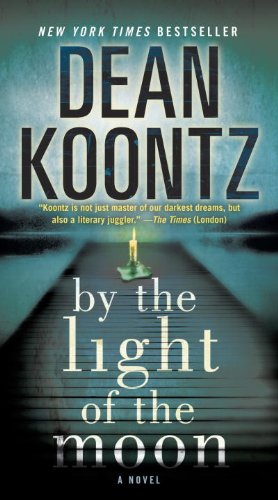





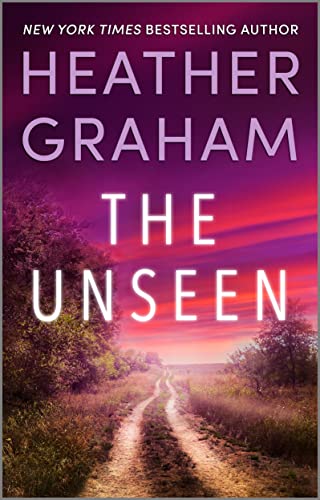
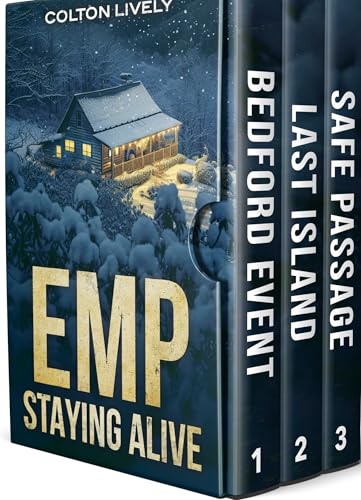


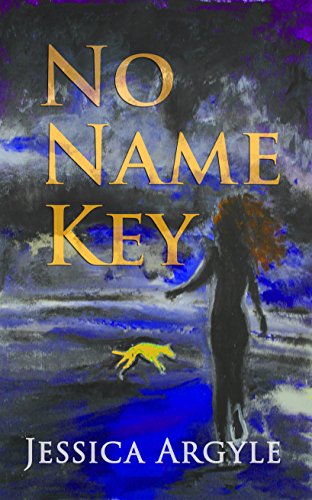



 Loading
Loading




















